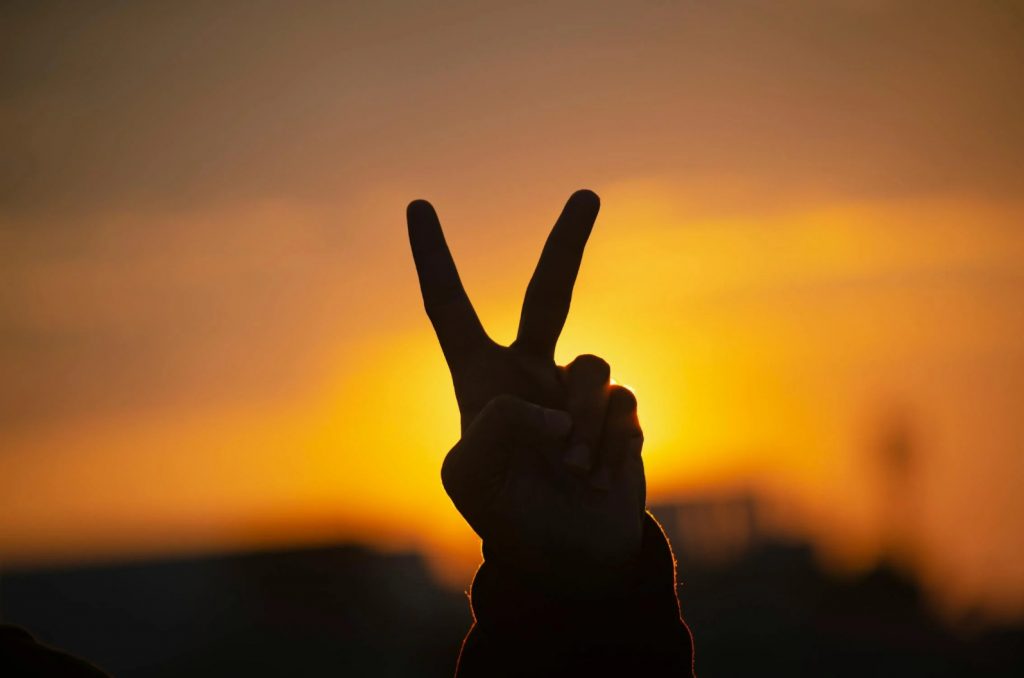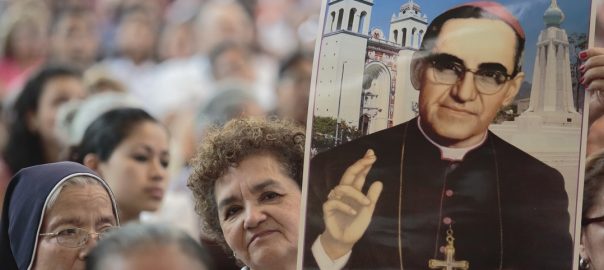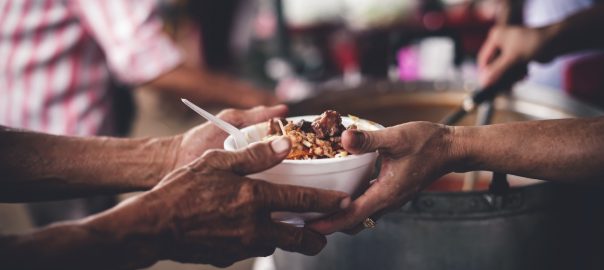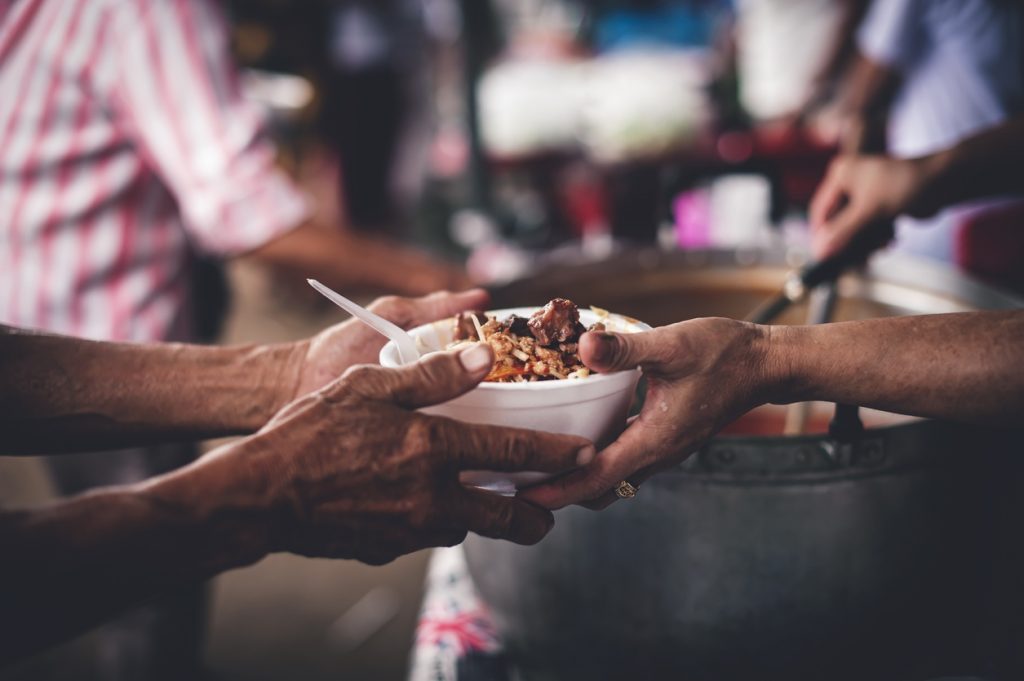Last week the American Psychiatric Association released results from their annual survey of anxiety in America.
The survey found that Americans are anxious about all sorts of things:
- 40% of us are anxious about job security
- 53% are anxious about the impact of climate change
- 59% of us are anxious about our health
- 61% are anxious about paying our bills
- 62% of us are anxious about keeping ourselves or our family safe
- 67% are anxious about current events in the world
This survey has been conducted nine years in a row now, so at this point a few things are clear. Pretty much everyone in our country is anxious about something. Many of us worry about lots of somethings. And these high levels of angst don’t appear to be going away any time soon.
Comforter
Today we set our sights on the tail-end of John chapter 14. Here Jesus speaks to eleven of his disciples right after the Last Supper. And right before he was crucified. Here Christ offers guidance and wisdom about what life will be like, when he is no longer with them.
The disciples, Jesus knows, are understandably anxious. He wants very much to soothe their fears. To do so he tells them about the Advocate, who will be with them forever. Not understanding him just yet, Jesus shares other names for their newfound friend.
- Spirit of truth
- Teacher
- Comforter
- Helper
- Holy Spirit
Here Christ foreshadows what happens on Pentecost in the upper room, when the active presence of God in our world, aka the Holy Spirit, descends on the 120, and began guiding the early church outside their four walls.
The Advocate will remind you of all that I have said, he shares. Verse 27 of the passage in particular stands out:
Peace I leave with you, Jesus begins.
My peace I give to you.
Do not let your hearts be troubled.
Do not let your hearts be afraid.
This is the promise of Christ.
Doesn’t that sound great?
But
And yet we know, all too well, of anxiety.
We know all too well of fears, worries, angst.
We aren’t anxious 100% of the time. But –
100% of us are anxious, some of the time.
The world gives us anxiety.
There’s no way around it.
We wear it on our faces,
We listen to it in our stories,
We act on it in word and deed.
Christ wants none of that for us.
To which it’s worth asking, how on earth do we receive and live into this peace?
Here
I’d suggest one of the best ways to receive Christ’s peace happens right here in worship. Any ideas which part does just this?
The passing of the peace.
Many of you know this liturgy well.
P: The peace of Christ be with you all!
C: And also with you!
I adore this part of our liturgy so much I encourage us to share Christ’s peace with each other lots of different ways – by handshake, hug, fist bump, holy kiss.
Love
Early church Father John Chrysostom wrote that sharing the peace is the church’s “fuel of love” and happens “so that we may love each other as siblings love siblings, as children love parents, as parents love children.”
I love that.
The passing of the peace happens in an important place during worship.
It comes immediately after the prayers of the people, where we give thanks for all we have, asking for what we need for ourselves, our neighbors, our leaders, our country, our world.
During Lent this portion of our prayers end with this: Receive the prayers of your people and draw all things together in your love, in the name of Jesus, who leads us from death into life.
Drawn together in Christ’s love we then share this love with the passing of the peace, following the nudge of the Spirit to share this peace with one another.
Immediately after passing the peace we celebrate holy communion together. Now reconciled with one another, now fully at peace, we come to the table. Taking the bread and the wine into ourselves reconciles us with our Creator, just as we have now been reconciled with one another, and makes us one with Christ.
Nourished and forgiven, in this moment all our needs are met. We are at once at peace with our God, ourselves, each other.
Not too long after that we go out, exiting this familiar space, and share the peace and love of Christ we have received with all we encounter.
We do that all week long.
We then come back next week.
We refuel with the peace of Christ.
We do that again, and again, and again.
Another
Sharing the peace is part of worship in many settings, including among Lutherans, Catholics, Episcopalians and Presbyterians. When I first experienced it in college – I wasn’t raised in any of these environments – I was instantly drawn to it.
Scott Vaughan, a friend and church communications consultant, has visited hundreds of churches over the years, across dozens of denominations, as part of his work. Most his life has been spent worshiping in Southern Baptist churches; I like to joke that he’s my favorite Baptist 😊. When Scott experienced his first “peace be with you” as an adult he didn’t know what to do initially. But he knew, in the moment, that it felt good.
Wanting to learn more, I asked Scott about what this peace passing means to him, since, for him, it is still novel. He shared that it isn’t just welcoming guests or people sitting near you. It is expressing the peace and joy that comes from following Jesus. A lot of people who come to worship attend because they are in some kind of acute pain. They are looking for sanctuary.
Passing the peace of Christ opens us to the work of the Holy Spirit among us, bringing us physically, emotionally and spiritually together in this space.
Passing the peace of Christ gives all of us, no matter what burdens we bring in the doors with us, just that.
Show of hands, who here, on occasion, feel anxious sometimes. Statistically speaking this includes all of us. The ways of the world can’t help but make us feel anxious, worried, troubled, filled with angst.
People of God, hear the words of Christ:
Peace I leave with you.
My peace I give to you.
Do not let your hearts be troubled.
Do not let your hearts be afraid.
Receive it. Share it. Live it.
Do so again, and again, and again. Amen.








